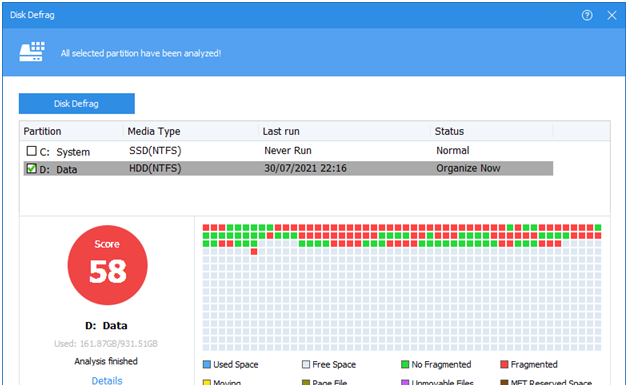In terms of medicine and healthcare, the world is currently living in a truly remarkable age. Over the past few centuries, the development of science and technology has given people incredible abilities when it comes to taking care of themselves, healing injuries, and treating illness. Long gone are the dark histories of bloodletting, leeching, and believing that your four humors govern your health. At present there is digital technology in most hospitals that can do things which would blow anyone’s mind; and this is only the beginning. As science continues to develop and test new methods, technologies, and medicines, society will only get better and better at treating medical issues, preventing injury, and caring for everyone.
There’s never been a better time to get involved in the healthcare field. Of course, when most people think of working at a hospital or a clinic, they immediately imagine becoming a doctor. This is normal considering the high social status you assign doctors (there’s a kernel of truth to the old joke that every parent wants their child to be a doctor or a lawyer – both are highly paid and well-regarded professions), but becoming a doctor is an incredibly long and arduous process. Doctors are also responsible for making the kind of life-or-death decision that can ruin their mood for an evening, a week, or even years.
More important, and less noticed, are the nurses in healthcare environments. With nearly as much responsibility as doctors, as well as with a much more patient-facing role, nurses are the glue that hold hospitals, clinics, and many other wellness facilities together. Nurses are truly the soul of the healthcare field.
After the break of the COVID-19 pandemic, the role of nurses earned a great deal of sudden and very positive attention. The public was made aware of all of the difficulties involved in nursing, and general attitudes towards nursing were more positive than ever. What’s more, because many are suffering the long-term impacts of contracting the virus itself, there has never been a greater need for more nurses. If you are looking for a first career, a new career, or have always wanted to do work that is meaningful, social, and literally life-saving, it might be the time to consider becoming a nurse! To inspire you, here are some of the best parts about the nursing profession.
- Meaningful Work
It seems obvious, but when you work in a healthcare environment such as a hospital, clinic, or rehabilitation/care facility, your day-to-day work is saving lives: often people forget just how impressive that is. While surgeons undertaking life-saving operations get most of the acclaim for the lifesaving work they do, nurses are the ones who make those surgeries possible. From the time a patient is admitted – whether with a long-term chronic illness or a sudden, life-threatening injury – to the time they leave the facility, nurses facilitate everything that happens to them.
There are, of course, the mundane things: mealtimes and wash times, routine medication and administration, but there are also moments where being a nurse has a significant impact on a patient’s wellbeing. Nurses prep and assist during surgeries, and nurses are on the frontline of any changes in condition which could lead to catastrophe or miracle cures. Nurses are also the people with whom patients socialize most while they are in care, which has a massive effect on the way in which treatment happens.
It has been shown, for example, that better care provided by nurses improves life expectancy of patients with lung cancer. No matter what type of nurse you become, there is always an opportunity to use your work to help others meaningfully: palliative nurses, for example, who facilitate end-of-life care, have the ability to influence the final moments of life by ensuring individuals under their supervision have a ‘good death’.
- Obtaining Qualifications is Easy and Fun
As mentioned above, becoming a doctor takes a very long time of very hard work. This is important to ensuring the decisions being made by doctors are sound, as they often mean the difference between a patient living and a patient dying, of course; but it means training for a long time – a decade, in some cases. Nurses, on the other hand, can get qualified to begin their work within a two-year period. The Passan School of Nursing at Wilkes University provides a range of courses to train nurses of all ages and abilities.
Where many university programs are theoretical and hands-off, requiring lots of time spent alone in the library or at your desk poring over the pages of one dull tome or another, nursing programs are both incredibly hands-on and incredibly social. This is to ensure that trained nurses are ready to cope with the fast-paced and team-based work of a hospital or care center. Rather than being stuck puzzling over theory problems, fighting with math equations, or carefully calculating the results of a dry statistical analysis, when you train to be a nurse you will be trying all the skills you need first-hand and with other aspiring nurses. Not only will you leave the program with the ability to be an outstanding nurse, you’ll leave with lifelong friends as well.
Unlike many first or new careers a person could try, nurses will always have work. At present, there is a severe nursing shortage in the United States: once you have obtained your nursing qualification and are ready to work, you’ll never be out of a job no matter where you live or want to work. Which brings up the next point: nurses can work anywhere!
- Opportunities for Travel
If you want to work in the United States as a nurse, you can easily find hospitals, clinics, and care centers which need nursing staff anywhere you are. If you want to travel to a new state, rest assured they will be in need of nurses too, but don’t set your sights simply on staying in the tri-state area. As a nurse you can move anywhere in the world and still be sure of a job.
Once you have the basic training required to provide nursing care, you will be able to take up work in most places with a simple conversion course. Many countries specifically seek out nurses from other countries and offer paying opportunities to move and re-train. Some of these places are stunning, as well! Denmark and Switzerland are on the list, as well as Ireland, Italy, and the Virgin Islands. There are also organizations which are always in need of volunteer nurses to work abroad as part of a charity or corporate interest program.
Moving to a new country is the best possible way to meet people, learn new things, and develop better cultural awareness. You never know, you might even meet your soulmate and build a new life somewhere different! Or you could travel constantly – some nurses take to the road in order to provide traveling care where they can find work. For anyone who has ever dreamed of living out of a van, that seems like a pretty great option!
- Plenty of Personal Rewards
There exists an abundance of reasons to become a nurse – constant access to work, easy education programs, and life-saving responsibilities – but chief among the benefits of nursing is its emotional and personal reward. At its best, nursing work is truly joyful and moving. You may witness babies take their first breaths, lovers crying over each other’s recovery successes, parents being lovingly cared for by their children, and countless more moving and wonderful scenes every day.
Research has shown that caring for others is one of the critical factors to mental health. It has been suggested by psychologies that generativity – the feeling of being needed by others and of caring for the people in your lives – is absolutely critical to social development and wellbeing. Working as a nurse means constantly putting the needs of others in front of your own, and while this may seem exhausting at first blush, the sense of satisfaction that is gained from caring for others in this way is unmatched. Doing care work has even been shown to lengthen your lifespan!
Nurses are also the main connection between their patients and the outside world. This means that, on top of doing the work of caring for others, nurses are facilitating their emotional connections to their loved ones. Family members, friends, and colleagues all make contact with nurses more than doctors, and nurses are the ones who control just how long visits are allowed and with whom.
Nursing is a profession which is crucial to the success and health of society, but it is also one which is satisfying, enjoyable, and full of social and personal benefits. If you know a nurse, give them a hug, and if you are a nurse, give yourself a pat on the back, and either way be sure to remember how amazing nursing work can be.














